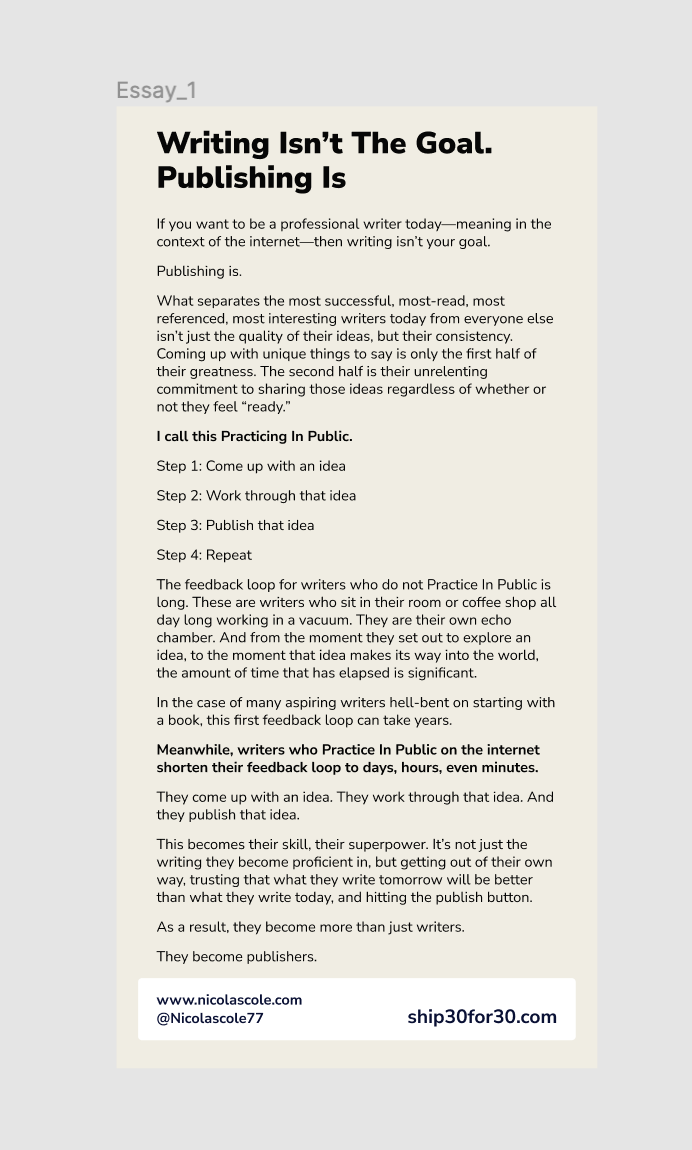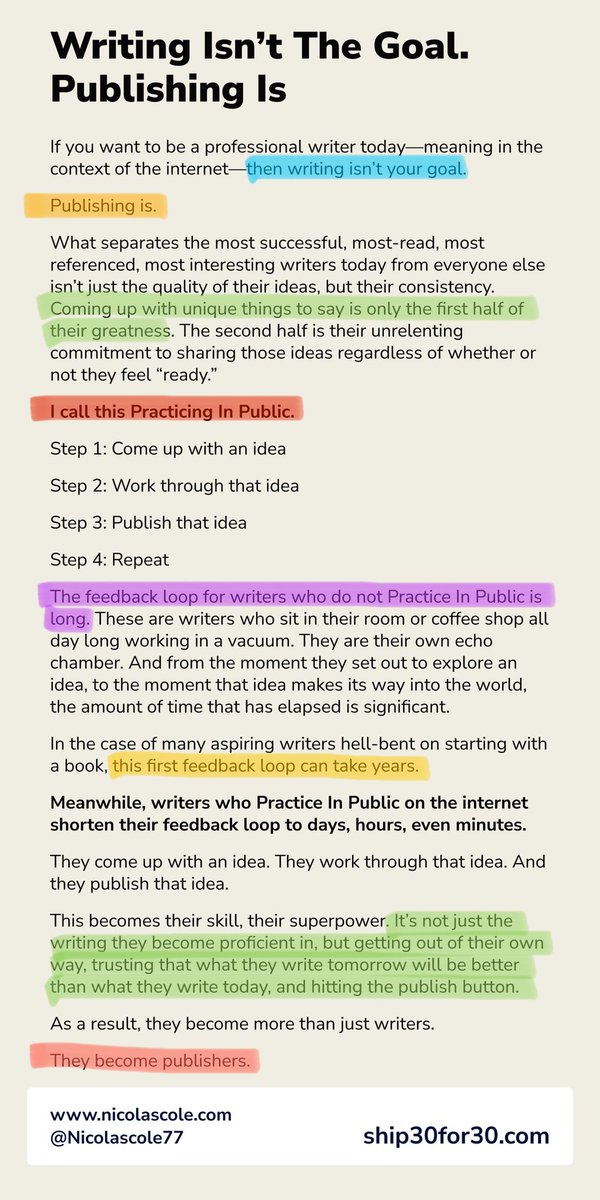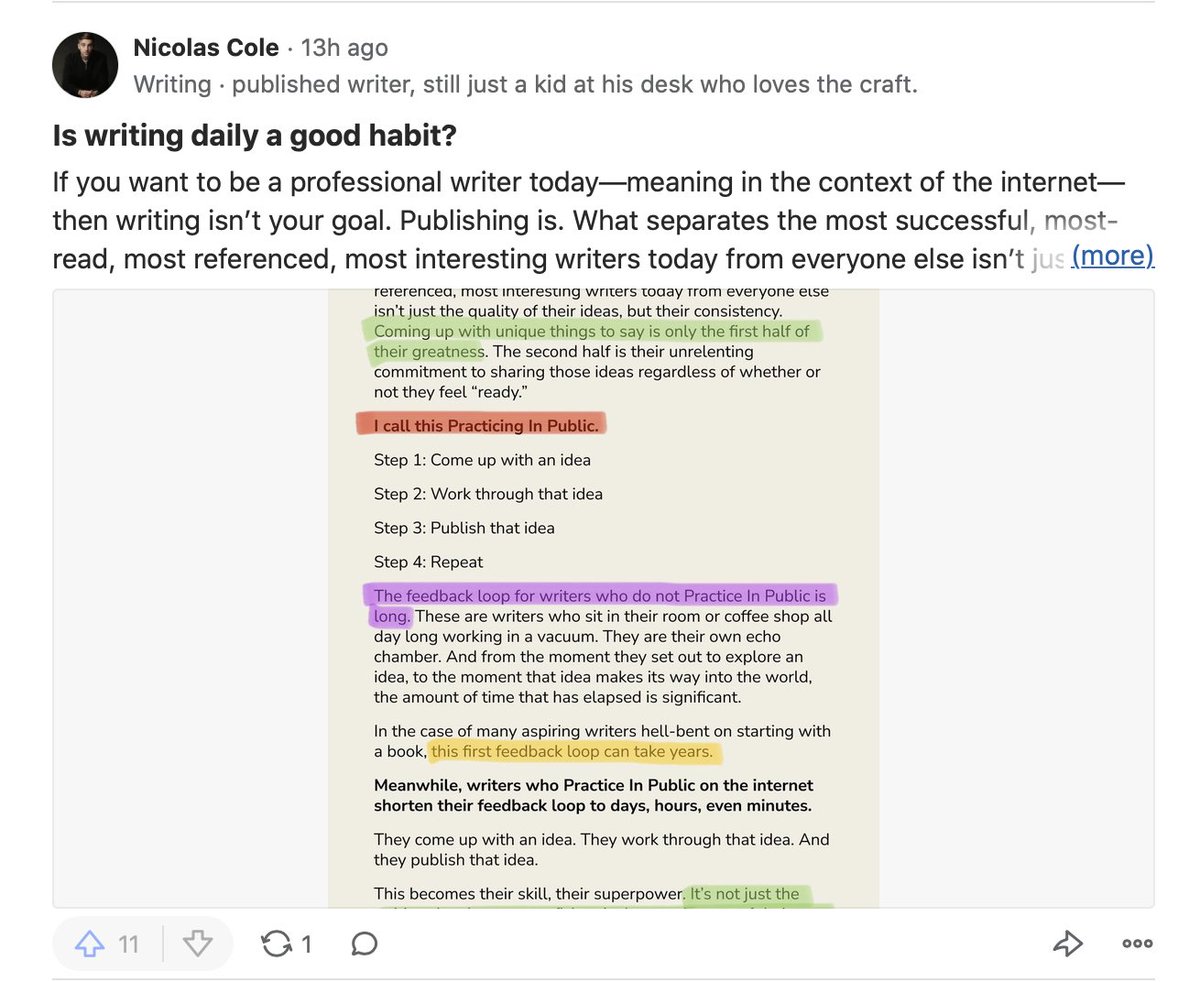The best way to control your emotional capital is to fine tune your internal monologue and replace your hunger for approval with a desire to grow.
In the passion economy, the real risk is that your job has to earn a living and meet the needs of your soul.
Six questions to consider if you’re thinking of leaving your job to pursue your passion.
A thread 👇🏽
The best way to control your emotional capital is to fine tune your internal monologue and replace your hunger for approval with a desire to grow.
Insecurity work doesn't move the ball forward, but you can do it multiple times a day without realizing.
Deep work requires being unencumbered by the day to day.
Your objective is to ride the waves of your business with serenity.
You have to fight the temptation to strip the future of its surprises.
Your business exists in the context of a marketplace, but also in the context of your life.
You have to be willing to overcome the defaults and orient your business around the things that define you.
Notice the difference between imagination and reality.
When you catch yourself saying “nobody likes my work”, witness your thoughts and replace it with “I am struggling”.
In the words of Dick Collins: “Decide before the race the conditions that will cause you to stop and drop out..."
https://t.co/iQpU3uAnFx

More from Life
You May Also Like
Those who exited at 1500 needed money. They can always come back near 969. Those who exited at 230 also needed money. They can come back near 95.
Those who sold L @ 660 can always come back at 360. Those who sold S last week can be back @ 301
Sir, Log yahan.. 13 days patience nhi rakh sakte aur aap 2013 ki baat kar rahe ho. Even Aap Ready made portfolio banakar bhi de do to bhi wo 1 month me hi EXIT kar denge \U0001f602
— BhavinKhengarSuratGujarat (@IntradayWithBRK) September 19, 2021
Neuland 2700 se 1500 & Sequent 330 to 230 kya huwa.. 99% retailers/investors twitter par charcha n EXIT\U0001f602

There is co-ordination across the far right in Ireland now to stir both left and right in the hopes of creating a race war. Think critically! Fascists see the tragic killing of #georgenkencho, the grief of his community and pending investigation as a flashpoint for action.

Across Telegram, Twitter and Facebook disinformation is being peddled on the back of these tragic events. From false photographs to the tactics ofwhite supremacy, the far right is clumsily trying to drive hate against minority groups and figureheads.
Be aware, the images the #farright are sharing in the hopes of starting a race war, are not of the SPAR employee that was punched. They\u2019re older photos of a Everton fan. Be aware of the information you\u2019re sharing and that it may be false. Always #factcheck #GeorgeNkencho pic.twitter.com/4c9w4CMk5h
— antifa.drone (@antifa_drone) December 31, 2020
Declan Ganley’s Burkean group and the incel wing of National Party (Gearóid Murphy, Mick O’Keeffe & Co.) as well as all the usuals are concerted in their efforts to demonstrate their white supremacist cred. The quiet parts are today being said out loud.
There is a concerted effort in far-right Telegram groups to try and incite violence on street by targetting people for racist online abuse following the killing of George Nkencho
— Mark Malone (@soundmigration) January 1, 2021
This follows on and is part of a misinformation campaign to polarise communities at this time.
The best thing you can do is challenge disinformation and report posts where engagement isn’t appropriate. Many of these are blatantly racist posts designed to drive recruitment to NP and other Nationalist groups. By all means protest but stay safe.





















